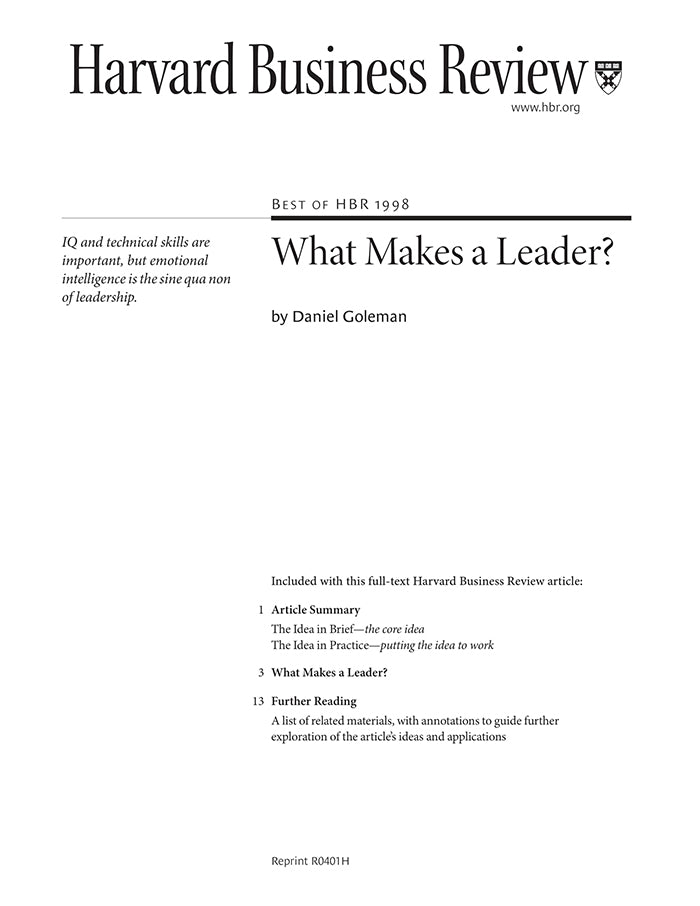What Makes a Leader? (HBR Classic)
受取状況を読み込めませんでした
This article includes a one-page preview that quickly summarizes the key ideas and provides an overview of how the concepts work in practice along with suggestions for further reading. When asked to define the ideal leader, many would emphasize traits such as intelligence, toughness, determination, and vision--the qualities traditionally associated with leadership. Often left off the list are softer, more personal qualities--but they are also essential. Although a certain degree of analytical and technical skill is a minimum requirement for success, studies indicate that emotional intelligence may be the key attribute that distinguishes outstanding performers from those who are merely adequate. Psychologist and author Daniel Goleman first brought the term "emotional intelligence" to a wide audience with his 1995 book of the same name, and Goleman first applied the concept to business with this 1998 classic HBR article. In his research at nearly 200 large, global companies, Goleman found that truly effective leaders are distinguished by a high degree of emotional intelligence. Without it, a person can have first-class training, an incisive mind, and an endless supply of good ideas, but he or she still won't be a great leader. The chief components of emotional intelligence--self-awareness, self-regulation, motivation, empathy, and social skill--can sound unbusinesslike, but Goleman, cochair of the Consortium for Research on Emotional Intelligence in Organizations, based at Rutgers University, found direct ties between emotional intelligence and measurable business results.
【書誌情報】
ページ数:16ページ
サイズ:A4
商品番号:HBSP-R0401H
発行日:2004/1/1
登録日:2012/3/28


